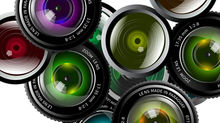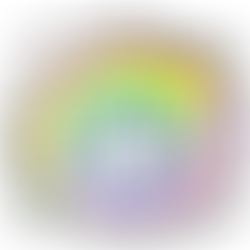Does Megapixels Really Matters?
- Admin
- Oct 21, 2017
- 3 min read
What Does Megapixels Mean?
In simple words megapixel is the total number of pixels that make up an image captured by a camera sensor. And basically to get the total number of pixels of your camera, you simply need to multiply the number of horizontal pixels by vertical pixels.
Megapixels are basically located on a camera's sensor. And overall its the the camera's sensor

size which is more important to image quality than the amount of megapixels. In the recent days the Mobile phone camera has more megapixels than a DSLR camera but doesn't mean that Mobile Camera will have higher quality images that the DSLR, This usually happens because the DSLR Image Sensors are big as compared to Mobile camera's and hence DSLR's can store more information's in the images which result in high clarity images.
So, according to you, What do you think does megapixels really matters you to buy a camera? The answer is it basically will depends on what kind of photography you shoot.
So please note if you are an average photographer shooting around for fun / wedding / sports / wildlife photographer shooting few amount of images in a single session, you really won need a high end Camera.
So you now you may think who needs a high end Camera?
However, it's the people who shoot for modelling,commercial purpose (Ads) or landscape, architecture, etc. here its the megapixels which play a major role as they need every details in their picture as that is what they are well known for it.
Why More Megapixels Is Better
The higher the megapixel count on a camera sensor, the greater amount of detail that can be captured in a picture. For instance, a 6MP sensor captures roughly fifty percent more detail in an image than a 4MP sensor and double what a 3MP sensor has and four times that of a 1.5MP sensor. For images viewed on a HDTV, computer monitor or even a smartphone, this may not matter much but it has a huge impact on those that actually want to print their images out.
When printing pictures out to photo paper, it is generally considered that the best print is obtained with a 300dpi (dots per inch) setting.
Why More Megapixels Is Not A Good Option?
More megapixels wont be a good option for a average person as he wont be able to use the camera features to the fullest and he will end up in wastage of the data resource he/she has, because the date used to by high end cameras with greater megapixel will be more. For eg, If a person goes for a shoot 4 times in a month which ends up in a total number of 4000+ pictures with a yearly count of 50000+ pictures on top of it every picture if clicked with a high megapixels camera this may lead to plenty of wastage of data...
So What Have We Learned?
First you don’t need high megapixels to get great photographs. And one of the other important thing to note is if your primary purpose of your camera is to post pictures on social medias,. etc. Then you do not need a high end camera for this kind of purpose. So do not go for a high end cameras with huge megapixels. So ultimately you need to figure out for what purpose you will be using your camera for
But for your information Megapixels is basically just one factor in a camera that effects the quality of the image. Some of the other important factors in a camera are the quality of the lens which are been used, the technology behind the sensor, etc. All of these play hand in hand for a great image...
My advise for a Starter Photographer will always will be don’t buy into the hype that more is always better, because it wont be true always:-)...
If you enjoyed this article, please subscribe & follow us to get more stuff like this!
Credits: For more information please visit following website: https://www.techforanyone.com/megapixels-dont-matter-cameras/















Comments